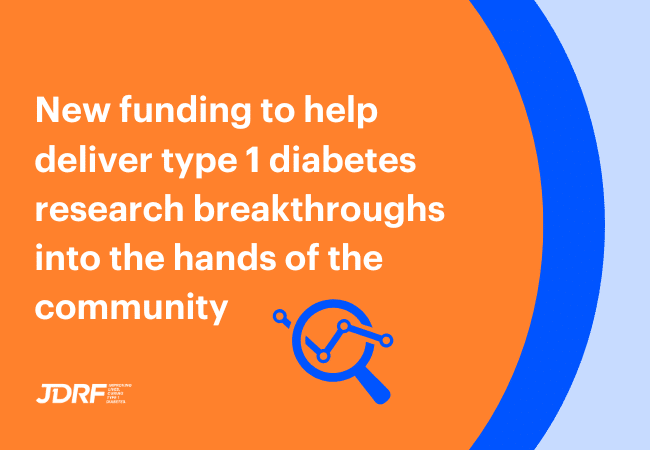Talking about type 1 diabetes with friends: tips for teens

The teen years can be awkward, with many young people just wanting to blend in with the crowd. Exploring new interests, fashion, relationships and freedom can be lots of fun – but what happens when type 1 diabetes (T1D) also has a place in this lifestyle?
One of the most powerful and positive things your teen living with T1D can do for their wellbeing and safety is to include trusted friends in their support network. As they gradually focus more on friendships and less on the comfort of family, it will be invaluable for them to have people that they trust, supporting them.
Telling friends about a type 1 diagnosis
Telling friends about T1D is an important step. A long, complicated explanation isn’t necessary – in fact, it’s best to keep it simple.
When talking with their friends, your teen might talk about what hypoglycaemia (a ‘hypo’) looks like, and how they might need some extra support when experiencing one. It isn’t about freaking anyone out, or your teen feeling that they have to cover every aspect of diabetes management (or listing all the worse-case scenarios); instead, it’s about raising awareness and feeling safe and supported while out and about with friends.
They might also choose to tell their friends that they need to be prepared with some supplies, and that they may need to take some time out to test blood glucose levels (BGLs) and dose insulin through injections or a pump.
Unfortunately, there are many misconceptions about diabetes in the community that might negatively affect your teen. People might think that T1D is caused by poor lifestyle choices, or might question what your teen can eat or do, which is incredibly confronting and can be difficult to manage. Whether their input is well-meaning or not, it can be frustrating, and your teen will need to decide how they will deal with this in their own way (here are some quick comebacks they might like to use).
Some teens are tempted to try to ignore their T1D when hanging out with friends. At the time, it might seem like a good idea to skip their insulin and BGL checks in favour of having fun, but it won’t take long before they feel too unwell to party. Try to remember that this is normal behaviour and your teen isn’t being irresponsible or difficult – they’re just trying to navigate a very difficult time in their life, and will need support and understanding.
TIP: Read more about teen T1D rebellion, or what to do if your child is being dishonest about their diabetes care.
Your teen’s diabetes and school
When it comes to school, you’ll need to let the office know about your child’s diagnosis so they can fulfil their duty of care.
They don’t have to tell each teacher individually, but there must be systems in place for diabetes management to happen regularly and safely while at school. This allows your child to focus on why they’re actually at school: to learn and engage with their peers.
It’s also a good idea for your teen to identify at least a couple of teachers or staff at school they trust and have a good rapport with to share information about their diabetes with. These staff members can help advocate for your teen, troubleshoot any issues with diabetes management at school, and generally keep an eye out for them.
TIP: Read more about returning to school after a type 1 diabetes diagnosis.
Your teen might not show it, but your understanding and encouragement will be enormously appreciated to help them navigate this vulnerable time. As they explore the world around them, they’ll appreciate the comfort of home and the support of their closest loved ones.
It’s hard to talk about T1D with friends, peers and teachers because there is that underlying vulnerability that’s present for everyone at this stage of development. Being patient is really important as your teen develops the courage to talk about their T1D outside of the family.
Read more




